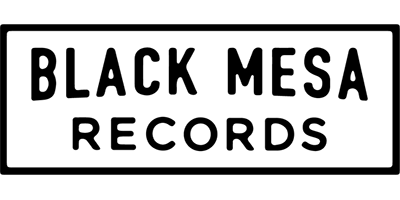
M Lockwood Porter Masters the Political Album
It's an election year, so it should come as no surprise that there's going to be a lot of political music floating around out there this year. You can have your opinions about that, but I'm always down for a good protest song. M. Lockwood Porter, recently emancipated from his classroom duties, has armed us with a some truly great ones. For me, the political songs that resonate the most are the ones that strike that perfect balance between immediacy and timelessness. (For example, I'm not such a huge fan of Two Cow Garage's new "History Now!" because it's not going to stand up past this election. Hopefully.) Porter also interweaves a few personal songs like "Strong Enough" ("I told myself I'd never write a love song but I lied/I hope I'm strong enough to keep you by my side.")
The greatest achievement of this album is that it's a truly cohesive piece. No song on here is a dud, to be sure, but it's important to listen to the whole thing, in order, all the way through. Porter starts us off with "American Dreams Denied," a country punk rocker that has all the intensity of a Two Cow Garage performance with half the bitterness (which is not necessarily a bad thing.) Of the more politically-oriented songs, "Reach the Top" is surely one of the finest songs Porter has written, and -- I'm gonna say it -- probably will write. That's not a comment on his limitations, it's just the kind of song that you can tell found the writer, not the other way around. Chris Prunkle does a great job of breaking it down over at Wannabe. It certainly captures the political moment for a certain group of people (which I'll get into) while contextualizing the fallacy of the American Dream in this country's history.
At first, the balance between the personal and political felt a little confusing, but Porter wraps this up neatly in a bow in the final track. "How to Dream Again" is a masterful song that describes Porter's personal journey through overcome his fears and loneliness to a desire for connection and, ultimately, political consciousness (which I see, personally, as the highest form of human connection.) After 40 minutes of frustration, isolation, and desire, Porter quietly ends his album with the words "But there's so many poor and dying/If there's a God He sure ain't trying/Or maybe God was in us all along."
While How to Dream Again isn't flawless, as a political piece Porter does everything right. I tend to be suspicious of political posturing with folk music, particularly by straight white men. (Sorry, dudes.) I don't know much about Porter's upbringing, but he and I do have a few things in common -- we both attended elite universities (he went to Yale), he spent some time teaching in an inner-city school. So where does he come off talking about getting cheated by the American dream? But throughout the album, Porter acknowledges his privilege quite explicitly without apologizing for it. "American Dreams Denied" talks about being raised with a "glass-half full" outlook, only to have that taken away. The song feels more directed towards white middle- and upper-middle class people like myself, for whom the Great Recession made our lives harder than we had anticipated. Of course, there are plenty of other people who have known for a long time that this country's ethos is a scam.
Porter gets into this in "Charleston," in which he declares his outrage at Dylan Roof's murders, but describes his own internalization of white supremacy and his determination to be an ally. If you know someone who doesn't get the #BlackLivesMatter movement, or the assertion that all white people reproduce racism whether or not they display Confederate flags, this is the song to play for them.
I tip my hat to Porter, for accomplishing a feat that few are able to achieve. I'm very excited to see where he'll take us next. His previous album, 27, is one of my favorite albums period, but I think I'm going to have to make a little more room in my heart for How to Dream Again.
Originally posted on Adobe & Teardrops
